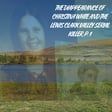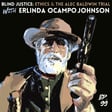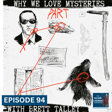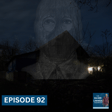Finding Comfort in Historical Struggles
00:00:00
Speaker
Oh, yeah. Yeah. I love to like the perspective that it gives me. I feel a weird comfort and knowing in discovering over and over again that we have always been kind of messed up like this, you know?
00:00:18
Speaker
like The things that we're looking at right now in 2024 as you know terrifying or they feel very new and they feel very urgent and they feel like ah you know we've never with unprecedented. That's a word we hear so much.
00:00:34
Speaker
But it ah so few things really are because when you climb through the portal and look through back in time, you you see those people that lived a hundred two hundred three hundred years ago and you find that oh my god they were fighting about the same stuff.
00:00:49
Speaker
then too, or they were having very similar fights and they were having very similar things. And it's like, sometimes we feel like we're on this precipice and then we're about to go over the edge or that this is it. And then you just realize that all of humanity has been having a lot of the same discussions and then a lot of the same fears.
Psychological Suspense & True Crime
00:01:10
Speaker
That's Alison Dixon, the author and host of the Ding Dong Darkness Time and the Vintage Villains Podcast.
00:01:18
Speaker
This is the Silver Linings Handbook Podcast. I'm Jason Blair.
00:01:37
Speaker
Alison Dixon has been writing novels and short stories for more than 15 years, and she's the host of the Ding Dong Darkness Time podcast and a new podcast called Vintage Villains. When Alison isn't writing or podcasting, she's usually spending her time focused on thrillers, psychological suspense stories, true crime shows, and interestingly crocheting something cute or creepy. Allison is the author of several well-reviewed, independently published novels, as well as a debut thriller, The Other Mrs. Miller, that was picked up by Putnam in the United States and other publishers across the globe. It was published in 2019. Some of her other writing includes The Horror Thriller Strings, a chilling tale of entrapment and greed that makes you question free will as much as a Calvinist would.
00:02:28
Speaker
and the dystopian science fiction novel The Last Supper. Allison was inspired by Gillian Flynn, the screenwriter, producer, and author of thriller and mystery novels, including Gone Girl, a psychological thriller about whether a character named Nick Dunn and whether he was responsible for the death of his wife, Amy.
00:02:49
Speaker
What Allison learned from Jillian's writing is that there's space for realistic and suspenseful fiction writing.
Inspirations from Flynn & Atwood
00:02:56
Speaker
She was also inspired by others like Margaret Atwood, the author of The Handmaid's Tale, that Allison said, quote, put her in a state of awe. She also cites Cormac McCarthy, the American novelist who died last year, who is the master of writing graphic novels, plays and screenplays that Allison says showed the power of brevity,
00:03:19
Speaker
a quality I have not quite mastered. I was the guest on a January episode of Ding Dong Darkness Time where we discuss the cultural phenomenon of the book and the movie Gone Girl and what we can learn about relationships and societies from the characters and the storyline.
00:03:36
Speaker
I was taken aback by the reaction to the episode and from a movie night we held with our Patreon members where we watched the movie together. Lister's talked about how the mind-boggling tale of Nick and Amy Dunn in Gone Girl was merely an exaggeration of what happens in our relationships when facades drop and the lengths that people will go to to avoid feeling trapped and to avoid being abandoned.
00:04:04
Speaker
This is the crux of why this episode is making it into our October episodes. Last year we did an episode on real life nightmares like the serial killer Israel Keys with Julia Cowley, the host of the consult and a former FBI profiler, but serial killers are almost sui generis.
00:04:23
Speaker
We don't meet Ted Bundy, Israel Keys, Joe DiAngelo, Dennis Rader, or any of these people on a daily basis. I was recently looking at someone who made a comment in the Facebook group about how it was a miracle they had not been kidnapped as a teenager because of how much they ran away.
00:04:44
Speaker
No, it isn't. It's a miracle when you're not abused by a family member. It's more miraculous when you don't experience intimate partner abuse.
Impact of 'Gone Girl' in Real Life
00:04:54
Speaker
Nearly 3 in 10 women and 1 in 10 men experience intimate partner abuse according to a 2010 National Intimate Partner and Sexual Violence Survey by the U.S. Centers for Disease Control and Prevention.
00:05:09
Speaker
Fewer than 350 people under the age of 21 were abducted by strangers in the United States per year between 2010 and 2017 according to FBI data. That's a one in a million chance. You are much, much, much more likely to be kidnapped by a family member.
00:05:29
Speaker
But the focus of true crime on rare events and the nightmare scenarios that we see in movies and novels, often like Gone Girl, serve as metaphors and exaggerations of what we really fear. Things like loss, a loss of control, a loss of a loved one.
00:05:46
Speaker
a loss of agency, a loss of our younger selves, a betrayal, and a loss of our sense of belonging. Today we're going to discuss how real-life nightmares in the form of psychological thrillers serve as warnings and help us understand our reality.
00:06:18
Speaker
Hey, Allison, I just wanted to thank you for joining. um You already know that I have been a huge ah fan of your podcast for some time, you know came across them originally, listening to other podcasts, and then became interested in your writing, you know have read I've read your books. I actually just am recovering from a flood that happened in my apartment and I found your book
Appreciation for Horror & Thrillers
00:06:46
Speaker
undamaged. woo he also It was on the floor, but it was undamaged. It was the other Miss Miller and I thought, okay, that's funny.
00:06:55
Speaker
this is cut i am But you know one of the things I know you came on last year and we talked about a lot of things, including horror and other things along those lines and you know our our shared appreciation for people like Stephen King. and We've had the great opportunity to collaborate talking about Gone Girl earlier this year, but also I've had the chance to be a guest on your new podcast, Vintage Villains. Yes.
00:07:23
Speaker
um one of my reallife nightmares patdy cannon that slave trader from Maryland. You know, we talked about John Wilkes Booth and Oklahoma Girl Scout Murders. We've done a lot of work together since. And I was kind of thinking like, what are what are some of the things that unite us? And I think probably looking at the world probably a little bit for what it is. As as opposed to what people want it to be might be a theme. I don't know.
00:07:56
Speaker
That's been part of our discussions. I would definitely agree with that. For sure. um Yeah, I think about that a lot. I think you and I just kind of had this simpatico like we just sort of. ah We don't have to talk about like we don't often talk about what it is unites us. We just kind of like.
00:08:13
Speaker
you know We just had that namaste. i just I've always had this feeling that like if we had mutual friends and lived in the same town and we're going out with them, you and I wouldn't have to talk. We just have to sort of like look at the crazy behavior, look at each other and be like, oh I think that literally describes the first weekend you and I hung out at CrimeCon in Orleans. Yes, you are you are correct. You are correct.
Differences Between Horror & Thrillers
00:08:43
Speaker
um Also describes CrimeCon in 2024 too. Oh goodness gracious.
00:08:51
Speaker
Yeah like i said it was like game no game and we just kinda like i saw you and i was like alright he's someone i need to to bring closer cuz i just sense that you know how to look at the world and look at the people in it and then an evaluated in a ah realistic and objective way um and and yeah that's just. That's something i value and a friend greatly.
00:09:15
Speaker
Yeah, same way straight there buddy. um So, you know, part of the reason why I wanted to come on last time, last October, since I'm doing, you know, October themed episodes, we talked about our our broader fascination with darkness. And after your episode, I did an episode with Julia Key, or Julie, excuse me, Julia Key, support Julie, with Julia Cowley on Israel Keys. Yeah. um And you know Julia is a former FBI profiler. And you know we were talking about sort of like the myths and the realities of of keys. And then when we did our episode this year on Gone Girl, one of the things that just really struck me in that conversation was this idea. And I think some of our listeners may have honed in on it before even I did.
00:10:05
Speaker
that in many ways what happened with Nick and Amy Dunn in Gone Girl was an exaggeration of what happens with all of us when we put up a facade in the beginning of a relationship. Eventually it falls down and eventually you end up essentially in a relationship with a person who wasn't really the person you started a ah relationship with and all the consequences of that.
00:10:31
Speaker
And I walked away without feeling like, and you know, it's very interesting, that conversation in January really did affect the rest of my year because in those moments where like, you know, you feel you're gonna be abandoned or rejected, I felt like it buoyed me, like I had this gone girl thing in the back of my head that was like, nah man, just be you. Yeah. Damn the consequences, just do you. Absolutely, yeah.
00:11:00
Speaker
And so it all got me thinking about the fact that like there are these real life nightmares that we sort of translate into literature that's just sort of an exaggeration of reality. And I want to talk to you just a little bit about that. this this time. And, you know, it all brings me back to like a conversation we had about how we we both love Stephen King and we both love horror, but you didn't think you were going to be a great horror writer. So you turned to psychological thrillers. I and just so I was curious about
Influence of Horror Elements
00:11:35
Speaker
what that path was like, what resonated with you about psychological thrillers and people like Gillian Flynn and Margaret Atwood and and just how you how you landed where you are now in terms of your work. That's ah that's a great question. i I think I struggled to stay in the horror space because In a lot of ways, um there are a lot of tropes around horror. There are a lot of um conventions around horror that kind of maintain that force you to maintain it in this sort of dread space.
00:12:14
Speaker
and Always always looking to keep people on that sort of like, in that mode of anticipating something awful like around any corner. There's not much, not often a lot of room for hope in horror. Not that there's a lot of room for hope in psychological thrillers, but I feel like it just kind of like takes it off like by a couple degrees.
00:12:35
Speaker
It allows you to meander through a person's ah different personality traits and quirks and play with suspense but in a way that isn't necessarily um designed to terrify. but That's a really interesting point because in horror, you know the psychology of characters does matter, but in and and sort of like psychological thrillers, it doesn't just matter. It is it. And what I have always found, even in a scary psychological thriller, trying to understand what's going on. Did you ever see like unusual suspects? with Oh, yeah na yeah yeah. So like Kaiser Sosay, like what's going on in your head?
00:13:21
Speaker
And and that becomes like another one for me is if you've ever seen ah Richard Greer and Edward Norton in hello and primal fear. Yeah. Yeah. Like I get lost in what's going on in these guys heads and then kind of lose track of the gore and the horror and and become much more interested in solving the puzzle. Yeah, exactly it does. It feels more like a puzzle where horror often just feels like a like a carnival ride um and that can leave you feeling dizzy or nauseous or um something that is or just screaming your head off. um you know I have such a weird relationship with horror as well. It's sort of like a.
00:14:04
Speaker
You know i was exposed to it very early on in my life um through movies and um and it way too young probably younger than i would have recommended or even allowed for my own kids but i was about six seventy years old watching. You know friday the thirteenth or friday kruger you know when all these and you know michael myers and all these guys. And the way that that sets into a kid's brain it it becomes both something that traumatizes you but also becomes a part of you.
00:14:33
Speaker
And so i find that i don't watch a lot of horror although i.
Stephen King's Balance of Horror & Psychology
00:14:38
Speaker
Do you still aim for the darkness at the same time it's just a weird thing around both repulsed by it and attracted to it.
00:14:46
Speaker
and so i just um I try to incorporate little aspects of it into what I do, um but I have to make it so I can live there. and so ah strings My book Strings was a kind of an exception to that rule just because it was in this constant. I was always like striving to make that book. is like awful as possible and in the best way, hopefully. But I mean, I was just really trying to outdo myself in every turn with that book just to terrify people. But that's not where I want to be, you know? yeah and So I was thinking recently about
00:15:25
Speaker
my three favorite Stephen King books. And it's really interesting because it makes me think that like i it just makes sense. When you think about the fact that in this part of my life, I'm focused on psychology and mental health and and the way people tick and stuff like that, yeah but they were a fire starter.
00:15:46
Speaker
Yeah, realistic kind of MK ultra type, type secret CIA program, all of which were probably true, except for they just, you know, telekaluthist and fire-starting instead of. like weapon on acid Yeah, yeah yeah yeah yeah um and then the pet cemetery, obviously, which so much is about the psychology of, like, the danger of not letting go. Yes. Very well said. Yeah. Please do not. Yes. Do not bury your a loved one in the pet cemetery because they're not coming back. Right. um And then the stand. The stand, ah perhaps my favorite. um And I think I was always drawn, I realized to both psychological
00:16:40
Speaker
thrill, but also sociological thrill. yeah yeah and i you know So when I went through Stephen King's books like Carrie and ah Christine, also very, very scary books that had lessons, you know whether it was about bullying or it was about other things like that, they and they had lessons built into them, important ones for me as a young person, yeah learn.
00:17:06
Speaker
ah The line between what was a psychological thriller and a horror, for me, it was very thin. A book like The It, there's a lesson in there, but it's really horror. But then a book like Stan, there's ah there's a lesson for all of society in that.
00:17:24
Speaker
And I wonder how do you differentiate the difference between. ah Psychological thriller and horror or do they always have a little of the same thing in them they definitely can I mean you can absolutely have. ah It's funny we heard you asked me this question because I get this.
Writing Thrillers with Horror Touches
00:17:43
Speaker
um comment from a lot of editors that I've submitted my work to, especially in New York, where they're much more interested in commercial thriller than they are ever going to be in horror, um but sadly, because it's just not where the money is for the audiences. And you they always accuse me of putting too much horror in my psychological thriller. And I think it is ultimately about how much you're willing to ratchet
00:18:13
Speaker
up someone's adrenaline level and make them experience something visceral and i think that once you pass a certain threshold of this reality and a psychological thriller it can start to verge into a horror place i know i'll give you a more concrete example i wrote a book.
00:18:31
Speaker
That it has yet to be published yet, but I'll give the basic strokes of it. It is a, it's about a group of moms who met online their little mom group, and they get together once a year for a little moms retreat, and while they're on that retreat.
00:18:47
Speaker
They committed this. Oh, well, I was about to say until the murder, this sounded a lot like the Mormon mom talk scandal. Yeah, it's a little. Yeah, but I figured, oh, so what they're doing is sort of like a vigilante kind of justice killing. You know, they'll find someone that they know is ah is a bad guy and
Supernatural vs. Psychological Thriller Elements
00:19:09
Speaker
they'll take him out. And that's just part of their yearly retreat.
00:19:13
Speaker
um and Then and within the course of the book, um bad things start happening to them and they end up, kind of so it becomes this cabin in the woods setup where someone is taunting them and stalking them and making them afraid of for their lives. and That's when the editor was like, this is turning into a horror story because there you have your little setting.
00:19:37
Speaker
um of the isolated cabin with the bad things happening and a bad guy running around who might be a killer, and that started to verge into horror for them and it took it out of the thriller context. And so I think there's something in that mix there where, and I do tend to agree, I just didn't think there was anything wrong with that ah because I think a lot of the people who appreciate psychological thriller will appreciate horror stories, maybe not all of them.
00:20:06
Speaker
But ah yeah. answer aunt so Aren't ah psychological thrillers just like aren't they really whores that aren't as supernatural or where the bad guy isn't just like impossible? Like, you know, I think about I think I think about horror stuff I've seen this year like Abigail.
00:20:28
Speaker
which Yeah, I really actually enjoyed that one. And and there are people too, and i you bring up a good point, by the way, when you said the word supernatural, there is a very strong argument out there among certain horror fans that horror is supernatural in basis. I completely disagree with that. I could write a very long dissertation on why I disagree with that.
00:20:50
Speaker
um But I think that is also part of it. If you can start to like think that there is something otherworldly going on in the story that is scary, then that puts it into horror immediately
Nature's Psychological Impact in Thrillers
00:21:01
Speaker
for people. like Stephen King will often um diverge into the supernatural with a lot of you know his horror stories like Pet Sematary, for instance, you have, ah obviously,
00:21:13
Speaker
You know, the dead coming back to life and he's being visited by a ghost and, you know, there's other things that happen. The Shining is another example. ah There's a ah very supernatural horror story. um Or he'll also just insert little moments of like telekinesis or telepathy or something like that within the context of the story where it otherwise isn't there.
00:21:35
Speaker
but What I ride because I said those were my three favorite books. Those are my three favorite Stephen King early books. My actual favorite Stephen book Stephen King book is The Girl Who Loved Tom Gordon. Oh, that's a good story. but You don't have an inch of supernatural thing into the last scene. It's almost like comedic.
00:21:56
Speaker
and a supernatural creature pops out. yeah yeah And it felt like it was appropriate just because by that point, that poor girl was going through a psychological break practically, and it almost made you wonder if it was a hallucination on her part. um I love that book, um mostly because I love any story that pits the protagonist against nature in any way, shape, or form. You know, even going back to, um oh, who's the guy who wrote all the stories in the in the Yukon? um and like I can't remember his name offhand. ah Jack something. Oh my gosh. He writes a lot of wilderness stories. i used to I like Call of the Wild. That was the name of of one of the books. um It was about ah you know somebody surviving out in the wilderness and there's wolves and that he'd be friends out there and stuff. So I love anything that involves a struggle against nature. And I feel like that story just really ah was quite perfect. it's and It's a perfect little story.
Personal Impact of Literature
00:22:53
Speaker
Are you talking about the Jack London book? Jack London. Thank you so much. Yeah. um So even going back as far as that, just reading those in middle school. um But yeah, ah my favorite Stephen King books, in particular, Pet Cementary, you mentioned one, probably one of is probably my favorite horror, strong horror of his. But probably my other big favorite is not quite, but almost horror is 1122-63.
00:23:20
Speaker
Which is about the Kennedy assassination, but he incorporates an element of time travel into it where the protagonist goes back in time to carry out the Kennedy assassination or to stop the Kennedy assassination rather. um And so he incorporates history into the story um as well as some weird um interesting little sci-fi speculative fiction elements.
00:23:42
Speaker
um so that's That book of his really ties together so many things I love about all literature into one perfect, epic, historical like horror story. um so I highly recommend that one. so you so but i I forget. Our episode aired in early October, the one on darkness. and um My mom died in the end of October of last year and at her funeral,
00:24:12
Speaker
um It was very funny. I made no references to literature except for one. and and And someone actually grabbed me about the reference afterwards. But I went through this part of the my remarks where I was talking about these key people who really were important and in me and my brother's lives and I realized as I got older and took on more responsibility and you know had the kids in my own life that part of the reason why
00:24:43
Speaker
my mom brought these people into our life it or valued them so much was that she knew they would be there for her sons afterwards. So anyway, in that in the remarks I talk about, i I speak directly to those people about how they've been there for us and how they comforted my mother because she knew um that they would that they would be there for us when she was gone.
Shared Human Experiences in Stories
00:25:09
Speaker
And you know I credited them with doing that. And I then went to talk about my mom and how she was there through our darkest times and how she didn't judge me and how she lifted me up. right And and that these people are the people who they knew would make
00:25:26
Speaker
ah her son, make sure her son was okay. And I talk about how I felt lost and lonely in life and how I was telling a friend recently right before then about the book, The Girl Who Loved Tom Gordon. And you know I told the audience that it's a you know a girl who was lost in the woods, who found comfort and loneliness and triumph through adversity, through listening to her favorite baseball player, Tom Gordon, playing on the radio through a Walkman. And I let the audience know, I was like, you guys are all my Tom Gordon, right? And you can't imagine the comfort that I get from being able to listen to them metaphorically through the Walkman.
00:26:12
Speaker
And so I bring this all up to say Stephen King wrote a book about a girl walking through the woods that 20 years later, Jason Blair sitting at his mom's funeral, it resonates with him so much because The thing that the girl in the girl who loves Tom Gordon experience that's universal was the suffering that comes from loneliness and feeling alone. And, you know, what's the likelihood that I'm going to get lost in the woods, listening to my his felt player and then run into a supernatural monster, probably fairly low. However, the likelihood of feeling loneliness.
00:26:52
Speaker
You were saying I mean you you really laid out beautifully sort of what king does and when I think any author who tries to write up a fiction a good fiction story. Is he has that beautiful double meaning you know you have the literal meaning of the story the plot and everything and then you have that underlying thing and I have no doubt that.
00:27:13
Speaker
That same was probably in my head i can't remember what year that book was written i wanna say was must have been about two thousand nine two thousand and eight so i'm there.
Empathy Through Horror
00:27:23
Speaker
But i'm that same that you talk about about that loneliness and that thing that she had that north star that she could just hold on to.
00:27:32
Speaker
That could guide her out and help get you through the really difficult times I relate to that so very much probably with the same people and the same friends and the same voices um as well that I latched on to during my darkest times, which is how I kind of.
00:27:48
Speaker
and in podcasting right now um because that's so important. and um and I really love um that particular element. i wrote a I wrote a story some years ago called Dust about um a man. ah The world is basically um being taken over by this moon dust essentially come back from this moon mission and there's this carnivorous like they found the dust on the moon like eats everything and it made it back to Earth and it just starts consuming the planet and the planet is slowly being converted to gray dust and it's told from the point of view of this man living in a bunker that he had built when his daughter um died in 9-11 and he he built this terrorist proof sort of bunker and he spent every penny he had and he was all alone.
00:28:40
Speaker
and And he ends up being the only man left in the world and he always thought of himself as this self-reliant individualist person that could survive on his own if he had to but he didn't realize this time was going on how much he needed that human connection.
00:28:58
Speaker
And so at the very end, he- I do it to survive without anyone is to not survive. Exactly. And you want that. You want someone to bear witness. You want someone to hold your hand or just be that sort of that so for you to know, like, I am here. um And he has a little bit of that toward the end of the story. and i And I was like, there's something about that theme that's so universal for human beings. It doesn't matter how solitary you think you can be.
00:29:27
Speaker
as a person, we still need each other, especially through the nightmares.
Podcasting & Shared Challenges
00:29:32
Speaker
So, right. Right. Yeah. Well, and, and that's also like a part of it and thinking about horror and King's always is, I always found this different because despite what people think King always ends on an optimistic note, except for maybe with Pat's symmetry, that might be the exception, but it always does. But you know, like it's,
00:29:56
Speaker
this idea in writing, whether it's, and I don't know if life is like this, but I feel like life is like this in a series, a non-stop series of something being taken away from us, a sense of safety, a sense of belonging, a sense of whatever.
00:30:15
Speaker
and in that suffering we go through, we learn its value. So the next time it's given back to us, um we appreciate it or have excuse me have the opportunity to appreciate it more.
00:30:32
Speaker
I mean, that's why I think horror as a genre is so valuable and I get a little i get a little irritated by people who dismiss it outright. um you know Because there are different grades of it, it it isn't all it isn't all shock and gore and gratuitous torture or anything like that. it's There are different types, and but I find that it has it serves the purpose of Allowing us to use our empathy to watch someone go through something very harrowing and then we can sort of afterwards have that reflection period um on ourselves in our own place in the world and we can sort of feel a little better about it.
00:31:11
Speaker
So I find that it's quite a valuable thing. I want to jump back to something that you said. You had said that it's very helpful for you in your darkest times. And you said that's sort of like what you're going through in podcasting right now. But I was going to ask about that, but also ask about how is it helpful in the darkest times? Well, I think you know You mean in terms of podcasting? No, just in general.
Facades in 'Gone Girl' & Relationships
00:31:45
Speaker
Just in general, I mean...
00:31:49
Speaker
i find ah I find it very helpful to know that I have the opportunity to connect with someone else that could be going through things that I've been through. Like, that has always been the thing that carries me through. um Being able to make a connection, even if I don't meet that person, just putting... We're doing that because that's my whole brand.
00:32:13
Speaker
yeah Yeah, I mean, that's really why I think it really why i love your podcast because ah I get that out of every discussion you have with different people is ah that thing that kind of brings us in all together and and unites us. And um when I put stories out there, when I put podcasts out there,
00:32:32
Speaker
It's really like I think about the times that I needed those things and I want to be able to put those things out there for people the same way. um Sort of like a ah like, I don't know, um leavingav ah leaving a coin in the wishing well or leaving a you know leaving someone there for someone else ah whenever they come along.
00:32:53
Speaker
Yeah, it's like paying it forward, passing it along, throwing the baton, pick whichever metaphor you want to use. Yeah, or like what they call a trail magic, which is what a lot of people, hype they hike the Appalachian Trail. um The people who hike the Appalachian Trail talk about how, you know, they leaf snacks.
00:33:12
Speaker
Or they leave um little little notes or they leave little things behind for the other hikers to come across because it's such a long and lonely hike that when you find those little pieces on the trail it makes you feel connected to people and you don't feel as lonely anymore and i think we just are doing some form of that.
00:33:34
Speaker
um and and light in a way Yeah, that's a beautiful way to think of it. yeah You know, back in January when we did that episode on Gone Girl, um um you know I kind of talked about what some of my takeaways were. I was going to ask you just sort of a little bit about what your takeaways ah from the book were the movie and the reaction of our listeners. And, you know, just to sort of like give the plot summary, you know, Nick and Amy Donne, they become married. Like in the beginning, we think because it's really hard. We have an unreliable narrator in Amy for most of the
Social Media's Influence on Facades
00:34:15
Speaker
book. But, you know, we think Nick, you know, puts on a front. Her parents put on a different kind of front. She puts on a front and they end up in this relationship.
00:34:26
Speaker
that ah it it's so abusive, it's hard to even tell who's abusive in the situation, but at its core, you know, Amy does some really crazy things, including framing, it appears, because I'm going to hesitate on everything about this book. It appears to be framing Nick for her murder. um You know, Nick, who's having an affair and is hiding all these things from Amy and feels tortured, is also doing this this you know untoward uh stuff toward her and you know i just did not expect our listeners our viewers and our communities to
00:35:10
Speaker
um for it to resonate with them the way that it did. And it was really interesting to me to see how in both the public discussions and then private discussions I had with people, they were able to relate this wild story about Nick and Amy to real things in their lives. Is that part of what your takeaways were from her? Oh, my gosh, i I was the same way. I mean, I um I've always felt very connected to that story because I love the exploration of facades, just in general, because we all have them. Whether we think we do or not, we all have a different mask in some form that we wear.
00:35:57
Speaker
at different times for different occasions. And um and we do it on social media. Every one of us does some form of this on social media where we put out the best of ourselves.
Authenticity Risks in Relationships
00:36:08
Speaker
um We put the best. It's funny you say that. I'll buy the facade part, but not always the best of us because it's very fun. and I was recently having a conversation with somebody who follows me on Twitter and you know it's a friend of mine. They follow me on Twitter and they're like, you have a very snarky Twitter personality. I'm like, yeah, I do.
00:36:28
Speaker
and so I'll see your snark and raise you like 50 snarks. right yeah no no yeah Yes, right. My snark on Twitter is a very diplomatic, yeah very very polite snark. But my Facebook personality is like all roses and sunshine and happiness unless you want to like argue some logical.
00:36:49
Speaker
logic ring with me. But what I realized in having this conversation was like in my Instagram, personality is all pretty pictures and stuff that I like that's art artistic. And it made me think of the fact that beyond social media, that we as humans put on different fronts for different audiences based on, I think to some extent, some of it's authentic, right? Like it Instagram personality is the part of me that loves beauty. The Twitter personality is the part of me that cares about logic. but And there's some reality to them.
00:37:30
Speaker
Yeah, ah but there's also some it's driven by the sociological factors of each of those groups. It's driven by the tools were given. How do we know when the facade crosses the line into being inauthentic? Ooh, ooh, that's a dang good question. um And you notice I said dang because I'm wearing my facade of not swearing because I'm on a guest i'm a guest on somebody else's show. see and that's That's the claim because you know me, my friend. I don't often hold back on that. um But that's a very good question and I think that is something that has
Motives Behind Facades
00:38:12
Speaker
Only really answerable by the person wearing it right because they have to know when they take that mask off at the end of the day whether or not they were lying um you know to a certain extent because like i mean i'm not i'm not. um You know whenever i'm in my professional motor semi professional mode like right now or if i'm on a vintage villains episode not usually drop enough bombs on that show either i'm but i'm still me. But i also know that i've been in situations where i start to feel an authentic and it's usually like if i'm in a group situation and and i'm not in can complete control of it i'm just along for the ride and i just have to put on a smiling face and pretend like i'm having a good time.
00:38:56
Speaker
um and when I'm you actually dying inside and that happens every so often. and ah and I think that anybody who's ever like been through something like that can sort of like go, you know at the end of it, they're like, man, i am I'm so tired and i'm just um you know I can't carry this on anymore. I don't want to do that again.
00:39:18
Speaker
And so that that for me is like that's how you know i think is is how it's. Making you feel but that is also assuming you are not maybe a psychopath because in the instance of gone girl ah with amy and neck i mean these two guys and this guy in the scale are.
00:39:38
Speaker
completely BS-ing themselves and everybody around them and in so many different ways that I don't even know if they know who they are anymore. and I think that's what really gets ah to the disturbing element of that story.
00:39:53
Speaker
is and it upsets the reader because you get only you get about halfway through that book and everything you thought you know completely gets turned on its head about one these people and I have this friend and when I first became friends with her like one of the things I always noticed she always was smiling always smiling always smiling in person always smiling on her social media and then we start playing this game as we got to know each other because you get to know anyone, you know, they're not always smiling, where I would guess whether she was actually happy in the picture it's stupid where she was smiling. And, you know, it didn't bother me because she was self-aware, right? Like she knew, she knew how she really felt. she Her facade that hadn't taken over. and And there was like an intentionality to it. Like, and she wants to put it this way. She's like, the people who are on my Facebook,
00:40:47
Speaker
This is what they can handle. That's very interesting. oh yeah and She said, like if they see how sad I am. they're going to rush to my aid, they're going to worry, and that's not going to do anybody any good. And I thought to myself, wow, like that's well-learned and
Abandonment & Control in 'Gone Girl'
00:41:08
Speaker
thoughtful. But I also see another version of it where a person could say, well, I'm smiling simply to project this image. um And if you're doing that to project that image,
00:41:19
Speaker
Maybe you're attracting the wrong people. and i even sure my friend like Was she attracting people to her who were Pollyanna and maybe that was a good thing for her? Or was was she attracting people who would never really be able to help her?
00:41:35
Speaker
because there Yeah so anyway that i think the motive of your facade i guess that's the way i'm getting that's true because there are some people that do put it out there to look like they are let's say more financially better off than they actually are or or professionally like um higher standing than maybe they actually are it's more like a They don't like what they see in the mirror every day whenever they have to live inside their own bodies. and So they have to project this image that is so much more saturated and enriched than then it might be, at least to them. you know they're They're sort of performing to a certain extent. and i
00:42:14
Speaker
so You can kinda tell I think we've all been on social media long enough now like when it was a new thing I feel like we were all probably doing that to a certain extent um but now that facebook has been around for god like almost twenty years now um I've been on it since two thousand and seven I feel like um we can now kinda like spot that.
00:42:35
Speaker
Or you see that and sort of influence your culture, right? You see it, you know, the perfect mom or what they're calling now the trad wife um ah phenomenon where it's like this perfect wife and this very domestic tranquil setting making like beautiful pies and having her life together and everything's perfectly organized and people watch this content and aspire to it. Not realizing it is engineered product that there is a producer behind the scenes of all this that it is a ah business.
00:43:04
Speaker
But people look at this and they go, Oh, I want my life to be like that. Well, nobody's life is like that. So that's what we're seeing now. um So there is that kind of facade. And I think that also kind of applies to maybe a little bit of like Nick and Amy and Gone Girl where they are putting on this.
00:43:21
Speaker
facade, like we are this beautiful, attractive couple that are, you know, we have money and we have our lives together and all this. And, you know, when she goes missing, that gets even more amplified. She's the the pretty girl who lights up the room and, you know, becomes that classic missing girl um thing that we see in real life um as well.
00:43:43
Speaker
An interesting point that I wasn't thinking about from the perspective of we can all relate to putting on a facade. We can all relate to becoming lost and unhappy in that facade. And we could all relate to the, you know, like Amy's fear of being abandoned by Nick causing her to do really crazy things, like at first trying to control him, it seems.
00:44:12
Speaker
yeah um and then eventually faking her death and framing him, and we could all relate to Nick's sense of like not wanting to be controlled and not wanting to be trapped.
Parental Expectations & Facades
00:44:23
Speaker
Mm-hmm. Mm-hmm. Yeah, you're right. I mean, they're also thinking of Amy. Her parents turned her into a product as a child. They made themselves rich off of idealizing their daughter in this fictional form, this amazing Amy character in this series of books that they wrote, and that's the daughter they were raising was the fictional daughter. Not the daughter that was really in front of me. Right. The daughter that was withering away in front of them and turning into this kind of a resentful, hateful person that she was keeping that under wraps for a very long time. And the way that Gillian Flynn sort of welcomes the reader into that
00:45:06
Speaker
psyche in the second half of the book is honestly, that I think that's more terrifying than a lot of horror that I've read. um and in way One of the scariest things about that book now that I've listened to what you're saying, actually, now that I think about it, and this is the first time I thought of it, is no one in that book is being loved for who they are.
00:45:27
Speaker
and Except for maybe McSister knows him and loves him for who he is, but with the exception of her, I'm not sure anyone in that book is being loved for who they are. No, no. And Amy, I think least of all, but I think it's also because Amy I don't know that Amy really knows who she is, you know, and that and that book, because what what I find interesting is wait maybe they never wasn't Amy, just the mind, you know, like the shell of Amy and that the that was just so disrupted by the character that her parents created. and
00:46:03
Speaker
but She loved being, when it was good with Nick, she loved being the the cool wife, the wife that was taking care of him, who was being adored um by Nick because she thought that he could see everything about her. And when it came that he was seeing sides of her, that when she was letting parts of herself out and he was seeing those and he was not reacting positively to them, then in her brain, she was going, oh, you don't really love the real me at all.
Amy's Psychological Complexity
00:46:33
Speaker
And then she turns on him and so and then he goes and has an affair and I think that just well of course sends it right down the tubes because you know what is the basis of a lot of marital affairs unfortunately is when when things get real because the honeymoon period ends the the shininess.
00:46:51
Speaker
rubs off the penny over over time. That's just what time does. We see each other in less than perfect circumstances um when we're sick or when we're injured or when we're desperate and sad and depressed, you know, those kind of things. And there are people that just You know when that shine rubs off they just start looking for another shiny coin instead of kind of appreciating the tarnish. you know ah And so the relationships that tend to last are the ones that see you see the tarnished finish on one another and these two guys, this these two people in this story just could not quite do that.
00:47:29
Speaker
I was talking to a friend who's a psychologist earlier this year and we're talking about the blessings and the curses of being in a psychological field in one of the Blessings I was telling her is, well, when you start a new relationship and everything's good, there are these little tells that tell you what this person is like at their worst.
Love & Acceptance in Relationships
00:47:53
Speaker
And I'm like, one of the really great things about that is if you really care about somebody or you've become a close friend of theirs,
00:48:01
Speaker
or you love them, um you're able to say to yourself, OK, this is probably what this person is going to be like at their worst, right? this Yeah. And you have a match in your head and you're like, I can live with that. Or on the other hand, you're like, this is what this person is like at their worst. They have done absolutely nothing. There is no way I can live with this. So like the curse of it is we're constantly like, you know, starting relationships with people, whether it's friends or dating relationships and we're like, yep, no.
00:48:31
Speaker
Everyone's like, why are you like, yep, nope. I'm like, no, no, no. I'm knowing a year from now, not not right. The upside of it, I was saying to her is that like you know you can love somebody for who they are, even the person they haven't showed you. So when you tell them that you love them, and then they go do that absolutely insanely crazy thing that they think is going to cause you to abandon them,
00:49:00
Speaker
you're able to be like, yeah, I already knew. Yeah. Oh yeah. And I tell you what, as someone who came into like my marriage is, is, I mean, you know, my middle language is a little rough here, but as sort of crazy, um, you know, cause I was quite young. I was 20 years old and still kind of working out the kinks and in the old brain there, um, and becoming who I was, uh, the fact that I was able to be that sort of, uh, impetuous, impulsive, and kind of, um,
00:49:29
Speaker
you know a lot more moody um that i than I currently am, if you can believe that. He's stuck by me. and that he said ah He said something once and like we were in the midst of a fight and he was like, you seem to think that I'm i'm going to stop loving you because of this. and when it was in When he had to like spell out, he's like, that's not how it works.
00:49:54
Speaker
and It's quieted the thing in my brain that was literally thinking, he's going to stop loving me because of this. yeah And it was like something I needed to hear because it was something I'd never heard before in my life, honestly. I mean, I'd never heard that from a partner. I'd never heard that really from a friend, not in those exact words. um Maybe it had been expressed. It was just something I'd never picked up on. yeah and And I tell you, it sort of changed me in a big way. Somebody said that to to either of these two, you know, maybe none of this stuff wouldn't happen in Gone Girl.
Fear of Abandonment in Thrillers
00:50:35
Speaker
yeah or Or the other piece of it, that's say like your husband and I probably share something in common in that sense, because I've been on the other side of the actual
00:50:44
Speaker
that literal conversation where I've been like, I'm not sure. I mean, like where I'm like, are you trying to like figure out a way to break my love because. Yeah. um Right. Yeah. but Like maybe it's one thing when you have people like that and they show you that, but what happens, and this is where I think it comes back to Gone Girl when the other person, if they, they never really wanted the real you.
00:51:14
Speaker
Yes. and That's the heartbreak, right? That's the scary. Yeah, that's not the heartbreak or one of us. Okay. Because if you are someone say like Amy, who is a very crafty manipulator, um who had been, had a history of ah you know manipulating and stalking and doing kind of and terrible revenge things to people who um Abandoned her like her best girlfriend i think from like high school or something like that or college i can't remember i'm right now it's sort of like you know but she was like ah abandoned very or felt abandoned very early on by. Her parents and you know ignored by them and everything so it really i think that fear of abandonment.
00:52:00
Speaker
And that fear of like, what if they see the real me and they don't like me? I've already been rejected by my parents. So of course anybody else is probably going to reject me. I think that's probably at the center. You're the mental health guy, but I mean, that seems to be sort of at the center. I think of a lot of people that have that cluster B attachment.
00:52:16
Speaker
you know issue of like they're gonna abandon me. Fear of abandonment. yeah Yeah and so Amy is like the textbook. You know it's funny because you're you're kind of right like if you bucket together sort of like borderline personality where you have this fear of real or man imagined abandonment or a histrionic personality where, like, if I'm colorful enough, if I'm outgoing enough, if I'm seductive enough, you'll love me. There's a sociopath who's like, you're not going to love me anyway, so I'm going to just charm you and manipulate you so you do what I want. Like, and same thing with the narcissist where it's like strong enough if I put on this facade of being strong or all these other things, so like all of them really are about fears of being abandoned.
00:53:05
Speaker
Yeah, and isn't it interesting too that that becomes such a common use and trope in stories, especially about relationships. If you're looking to write a story about a really messed up relationship that tends to be.
00:53:19
Speaker
the centerpiece. It's in a lot of ways.
Horror's Exaggeration of Reality
00:53:30
Speaker
Yeah, I mean, geez, go watch Fatal Attraction. I mean, that's ah like another I almost feel like Fatal Attraction kind of walked so everyone else could run with these stories. you know Like, um I will not be ignored, you know, um boiling rabbits on his stove, you know, that kind of thing. So I think that that is such a shared human experience. and and you know we were I think in your um notes, you know you'd mentioned another very similar story, The Girl on the Train by Paula Hawkins. and you know It plays on a sort of a similar trope, a very different story and in some respects. But this is another trope that we see a lot with female-led or sorry, woman-led ah stories about
00:54:14
Speaker
I had broken marriages or abandonment is there i think any i can't remember if she was a drinker, but a lot of the women in the stories are alcoholics and paula ah hawkins wrote you know her main character was very much an alcoholic on the story the woman in the windows another very similar,
00:54:34
Speaker
um, domestic thriller, um, with a alcoholic woman protagonist, um, who is dealing with sort of the end of her marriage and all the thing in family and everything that went wrong there. The thing is a lot of people call these tropes. I just call it a trope, but it's a trope for a reason. I think it's kind of a, again, a very shared human experience of, you know, adding substance abuse to that. ah Yeah.
00:54:59
Speaker
And then, you know, like, it's funny, I was going to jump back to one thing you said about um you mentioned fatal attraction. And, you know, like, so Glenn closest character is the woman with the affair. And one time she comes in ah to the house and she's boiling, right, the daughter's bunny or the kids. Yeah, the you know the daughter's pet rabbit. Yeah. So insane. Right. Like 100 percent way out there insane.
00:55:27
Speaker
But how many times do I end up in conversations where I'm saying to someone, you better look out or that person is going to boil your bunny? I mean, like, it is a metaphor that comes up in conversations. Like, you know, i I literally said to someone a couple of weeks ago, have you done a head count on your bunnies?
00:55:47
Speaker
yeah yeah Yeah, I mean, that is part, it is interesting because it yeah it is it's where a story becomes the touchstone for a human experience that is relatable to us all, even though it feels hyper
Self-Blame in 'Girl on the Train'
00:56:01
Speaker
real, right? Because who who knows anybody that that's actually happened to? Or for instance, who knows? I mean, I know there have been stories about, like,
00:56:10
Speaker
um, a gone girl scenario like Sherry Papini being, um, the one that comes closest to mine where she disappeared herself for a bit and her husband, you know, an attempt to frame her husband or whatever. ah But in reality, a lot of these stories are very exaggerated. They don't happen this way. You know, girl on the train, that scenario is ridiculous in a lot of ways, but in the core of it is like part of, again, that relatable human experience of loss.
00:56:40
Speaker
and need, like human need for love and and contact. um and I think that's why that genre is so popular with a lot of women, actually. A lot of women in domestic situations that have young children and they are often newly married or in new relationships. I mean, the demographic of people that read these stories are usually women who are in their own domestic situations, and maybe they feel a little trapped, but not like that. So they'll read a domestic story about someone who's in a way worse situation, and they go, well, okay, my life might be a little boring, and maybe I have to do laundry every day, but, you know, for the most part. This isn't that bad, right? Yeah. yeah So in in girl on the The Girl on the Train, you know, ah Rachel is the, I think she's in recovery at the beginning of the book,
00:57:35
Speaker
But she's the alcoholic and she is driving mindlessly from like, I don't know, it's somewhere in Westchester County to New York City and back and forth on the train. And one of the sort of like themes of her thinking that is very clear is all of her regret.
00:57:53
Speaker
She has regret for her marriage falling apart. She believes that it was her behavior, like at a holiday party, for her work that contributed to him losing his job. Like she holds herself responsible for everything. And I think that that's almost a very relatable thing for all of us when, well, not all of us, because there are narcissists, but for many people,
00:58:21
Speaker
that when something goes wrong, we you know whether you're naturally self-aware and vigilant and you go in and you you know worry about and regret your past mistakes just as a natural part of your personality, or you're not but you're smart enough to know that you need to, we we begin to sort of like build this myth that were responsible for everything bad that happened as opposed, like the options are either they are all responsible or I'm completely responsible instead of the the the more likely reality that both people will play some role in any human connection
Addiction & Manipulation in Relationships
00:59:02
Speaker
failing. And then as ah she starts to sort of recover her memories, Rachel realizes that
00:59:10
Speaker
Or it's not the recovering the memory. She talks to somebody from her ex-husband's work who's like, oh, no, no, no, no. he didn't He didn't get fired because of anything you did. He got fired for sexual harassment. Yes. and and wait a minute, everything that I thought about myself and was beating up about myself may not be true. And then that leads to her realizing, oh shoot, my ex-husband did kill this woman who is his neighbor. But in that core idea that of living, that nightmare of living in a world where you think you firmly believe you're responsible for things that you may not be,
00:59:51
Speaker
I find both both frightening and also totally relatable. Oh, yeah. And, you know, there was a lot of gaslighting going on from Tom with her, too, because he was feeding into that, like, you're a drunk and you did this and you did that. And because you're a drunk and that's really what it became about. And of course, you know, she starts you know and The way the book, by the way, paints her alcoholism is very brutal to read, especially if you've ever had a drinking problem. um you know and and so that I have to give props to that because she didn't make the alcoholism attractive.
01:00:32
Speaker
I'm like a like you tend to see in a lot of stories featuring women in like soap operas where they're just tipping a little bottle of wine into their glass and drinking it demurely. I'm no Rachel was just she does all that stuff man and you know she was a binge drinker and you know being in that vulnerable situation where you know that you are in diminished capacity and you're not.
01:00:55
Speaker
and your best, um your best mind and you're not making the best choices because of the drinking that yeah and also that he saw that and capitalized on it though. You don't have clear memory. And so that's another piece. So when you are an active of alcoholic in a relationship or a drug addict, you rely on other people to fill in the gaps. Yes. And some people will fill in the gaps with the truth and some people will fill in the gaps with a modified version that serves them well.
01:01:27
Speaker
Oh, that's so true. That's so true. it be you a One fascinating thing that I've found in in in work in mental health that people coming out of recovery, one of the most difficult things is for the person who is supporting the most, particularly if it's their intimate partner, to transition from ah caretaker mode to equal partner mode. And it is really rough, it's hard to tell when. um Most people have just very practical idea ah problems around like what you what you need for me. But there's a handful of people, they may have built resentment, they may have um you know they just may not be good people right yeah ah that will kick that person who no longer is needy to the side. But it can create for the person who's in recovery, you have this real blindness to what was me and what was them and what was circumstance.
Addiction's Cycle of Victimization
01:02:31
Speaker
yeah And it's really, really fuzzy and I think
01:02:37
Speaker
There's something frightening that can happen to people whenever they live in a are and a situation that's being clouded. You mentioned the word gaslit. But that idea that we make it so black and white, right? Like it's all me, it's all them, it's all on the blank.
01:02:57
Speaker
But the thing about the girl on the train is obviously a lot of it is Rachel and um it it's Rachel and her drinking. yeah he believed it was all her I remember talking to this friend last year and it was relatively new friend and she was telling me about one of her past relationships and he was very very abusive in a lot of different ways and like.
01:03:17
Speaker
It was, it was it was and there were just ah horrifically, emotionally abusive toward the end of one period. It started to get physically abusive and it was really bad. And it was very funny. I remember her saying at the end, and I thought this was so cool. And she's at the end of this whole like three hour conversation about her relationships we're randomly talking about. And then she stops and she's like, and don't get me wrong.
01:03:43
Speaker
I sparked a lot of it. And she then just starts to go into like the things that she did to set things off. And I was like, huh, wow, this is a really well-rounded person I'm talking to right now who sees who sees that Satan walked in the door in the form of this dude, but she also holds herself a little bit responsible for it. I was like, that was a nice balance. and Because for most of us, if Satan walks in the door,
01:04:08
Speaker
It's all Satan's fault. That's so true. And I tell you, i mean the you know having had my own drinking problem that I've recovered from, I can absolutely say that the the feeling of like knowing that once I got past a certain number of drinks that I just kind of became I wouldn't say a completely different person, but a lot of my least favorite characteristics would emerge, um usually just being very like emotionally mottling for lack of a better word or sort of like ah weirdly dependent and insecure, you know things like that um that. That feeling of like no one's ever going to love me, you know that kind of thing. and A lot of those things come out when you're
01:04:56
Speaker
I do when you're drinking a lot and um that feeling of like waking up in the morning and having to check my phone immediately to make sure that i did not send some drunk and confessional to somebody and at two o'clock in the morning while i was completely loaded. I'm you know that that kind of like you so glad that the bulk of my drinking was pretax message.
01:05:17
Speaker
Oh my God, I wish I could say this. um and and so you know and and the us we There's some wild answering machine messages for a problem to throw out there.
01:05:28
Speaker
when you When you put yourself in that situation of sort of removing your higher faculties on a regular basis and you are ah with someone that you know maybe that's not the most honest and healthy relationship and there becomes that weird codependency that happens where you know they become dependent on your kind of incapacitation to be able to do some of their manipulation and get some things out of you that they want and you're dependent on them because you know you're this Drunk and full that is nobody without them and you'll do anything to hold on to them and you just end up in this like messy.
Magnified Real-Life Fears in Fiction
01:06:05
Speaker
You know you're victimizing each other you know over and over and over again it's a nasty cycle. And that's sort of I know people that have lived through that and I think that that's the thing that that story.
01:06:18
Speaker
or really um hammers on. And there's a lot of guilt in her because, of course, she's so guilty she feels guilty for having this addiction and putting herself in these situations and being this kind of person that she was when she was drunk and so she's willing to believe.
01:06:34
Speaker
Yeah, it was all me because I was this horrible drunk and it's like she feels guilty after she figures it out. Yeah, yeah, she feels she still feels responsible.
01:06:46
Speaker
ah And and I think sometimes like we have to carry the uncertainty of never really being able to know our rolling. So if all of these things, if all of this literature, these psychological thrill thrillers, and even horror to some extent, are about our fears, have you read the book or seen the movie The Room? Oh, yeah. Okay, so i I focus on the the movie. You know, Brie Larson's in it, her son and her kidnapped. It's based on a real life story that happened in Germany where
01:07:26
Speaker
where a woman was kidnapped ah by her father in the hidden, I think, in a basement for like 20 plus years. Yeah. And, um you know, there's the case in Cleveland, Ohio, where they found a bunch of women trapped in the nice house. Castro, yeah natro yeah. There was one in New York when I was a reporter in the early 2000s.
01:07:50
Speaker
And, you know, I even think of something like Stephen King in the book Misery, where he is sort of writing about himself as a writer who's trapped in a bed and, you know, a woman has captured him, controlled him, is trying to force him to write. And I think about all those about being trapped, right? All those stories. What is that? ah What do you think the fear is there? Oh, I mean, that's that's fantastic. I mean, the Because I remember myself as ah a young person, that was one of my biggest fears as a child was being kidnapped.
Fear of Entrapment in 'Misery'
01:08:30
Speaker
um and I think that was also being fed a lot into our heads. I was a kid of the 80s and 90s, so what we were always seeing like unsolved mysteries, in america America's most wanted, and you know hearing these stories about kids going missing. and Then we also didn't always have the benefit of knowing what happened, whether these people were ever found or rescued or not. now thealvans are much more likely to get kidnapped by your dad
01:08:52
Speaker
but right yeah The whole ah concept of parental kidnapping was completely foreign to me as a child as well as like, how can a parent kidnap their own kid? like That makes sense i mean and that's just shows how lucky I was. I wasn't a child of divorce or anything like that. But um but I think, yeah, that fear, now Stephen King's fear, I think is so beautifully you're illustrated here because you know, when he was kidnapped by his number one fan. And again, this is a story that would probably never really happen, right? When you really, when you really zoom out from it, like, what are the odds that you are are you 100% sure of that? No, I mean, know like, what thing you're, you're a boss, right? Like, and you have
01:09:34
Speaker
You know, I don't know people within your workforce who adore you or you do something like you're a writer or you're a podcaster or you are. I don't know. I'm i'm just going to make this up. You're the matriarch of the family. You kind of do get trapped by the expectations of your social relationships and social relations. Oh, absolutely. I just mean like the plot of this story of love yeah what it ah him wiping out in a road and being rescued by the woman who is the most obsessed with him and has been for years, right? And so he he creates this, again, this sort of exaggerated scenario. um ah But it it works specifically because
01:10:15
Speaker
Stephen King does such a great job, and I think he did this in The Shining very well too, where this is a man who is at a crossroads with his career, and he has to make something of it, right? And Paul Sheldon in Misery is trying to make a break from writing these sappy romance books that made him rich and famous. He wants to get back to writing the, quote unquote, real stories, the important stories, and so he kills off Misery, his character, and he's trying to write this more masculine book about a guy who steals cars. and you know But then he gets kidnapped by Misery's biggest fan and forced to write. and It's sort of like that fear of being held to the expectation of an industry, of a business, of your career, of society, and what they expect of you.
Societal Expectations & Standards
01:11:04
Speaker
is terrifying to me like on a professional level. I hate this idea that I have to be pigeonholed into this one thing for the rest of my life. Let me explain it though. like Think about it like a mom, right? Yeah. Where a mom has held to the expectations of her family. like I just think about a lot of the moms who come into my office or even women in my life who who who ah mothers and their families and it's like put on the brave face. you need It's strong because the kids need you right now. you knowy and they're They don't get to like be the real them. They're constantly playing this role of mom for everybody else around.
01:11:48
Speaker
Oh, yeah. Oh, yeah. i You know, and I see that so much in older generations. Like, when I think about my grandmother and how um I watched her for so many years, my whole childhood, where she was making all the meals and she was always the last to sit down every time we gathered. She was always getting up and getting things for people. She was always just looking after everybody. And we were always like,
01:12:12
Speaker
Grandma, sit down. Let's come on. Don't get up again. Let's eat. And it's like because that was the role. And I don't think until I would say in the last five years, she's now 95 years old and she's she's still with us. And um now I think I finally see the real anime in a way that like she probably always was. But she doesn't have to put on that performance or that show or that role anymore because her kids are all Old enough to be retired themselves now and her grandkids are my age and you know and in she's now at the end of her life and. Finally you know and I like to think that I'm more privileged in that in the sense that I didn't I wasn't held to that exact.
01:13:00
Speaker
standard, but of course, you know always there's that role of having to repress or stuff down or or put on the put on the smiley face, try to be the the good mom and all that. when A lot of times, when they're especially when they're really young, you're just very depressed, you're very tired, you're very overwhelmed, and but yet you have to get up and you got to get those kids up and you got to get them dressed and fed and off to school.
01:13:27
Speaker
Um, and sometimes the weight of that is absolutely crushing. but so something You said that held to that standard because if you think about misery and you think about the way that Stephen King escapes and, or I called it Stephen King. Oh, to it it's him. i take dad boy I wonder whether it's like really about the standards that we're holding ourselves to, that what the things that we, like I've always wanted rather in misery, like the torture was really a metaphor for not being loved.
Stephen King's Struggles & Work
01:14:10
Speaker
And what she was taking from him was, you know, the adoration of a fan, et cetera, et cetera, based on what she's yelling about, take away the hammer and the tying to the bed and all that fun stuff.
01:14:24
Speaker
um And that maybe to some extent it's really about the standards we're holding ourselves to. oh Of course, and like with King in particular, i mean he he had he had two prisoners, main ones. One was his addictions, and that that finds its way into so many many of his stories. um and he's He talks so openly about it. and You could just see so many metaphors for addiction through so many of his stories. But also, I feel that the expectation that he set for himself when he was at the peak of his fame in the 80s, when he wrote Misery,
01:14:56
Speaker
I'm he was being branded very specifically as a horror author and he always hated that um you know he really wanted to just be a fiction author you want to be known for being able to do so many things as one reason why he wrote under a pseudonym richard bachman.
01:15:12
Speaker
um For a number of years because he wanted to expand beyond the horror um landscape and it was so hard for him to be broken out of that it took him. Many years and he's but he still carries that label like he it's still stuck to him because that's what made him famous and so i feel like for him like and what the this the pressure that he set for himself.
01:15:34
Speaker
um to be able to perform as like America's leading um horror author was a lot. and I think it probably fed his addictions and I think it probably fed you know a lot of his work um as well. i mean Being able to like you know be released from that in a lot of ways as he grew older and he got clean and he nearly died. and After being hit by a van, I think all those things that happened to him in his later life, I think finally he was able to just be like, I'm just going to write.
Stephen King's 'On Writing' Recommendation
01:16:03
Speaker
Yeah, and one of one of the books that I recommend to people the most has nothing to do with horror, the paranormal, but his book on writing. So good. Amazing. it's Oh my God. It's a tremendous, um I love the way it's divided between both being an autobiography of of sorts and ah and a writing guide. In reference manual. manual Yeah. Yeah.
01:16:28
Speaker
Well, I wanted to ask you about another one that's in the public consciousness over the summer. It was very funny because when I saw Abigail, there were two movies. I live like a stone surfer from a movie theater. I can literally roll into it right now. So lucky. Yeah, I know. I know. know i I live a charm of life, as I like to say.
01:16:48
Speaker
But um i you know and i was sitting it was some saturday i just remember is a saturday cuz i know my saturday routines and i'm like sitting there talking to a friend and i'm debating abigail or civil war abigail or civil war to go civil war did go to so and you know civil war is this movie that's about it's like this You can't tell politically which side it is, but the United States is basically fractured. The main US government is clustered primarily to the East Coast. some of the you know Some of the Great Lakes Upper Midwest is still a part of it, but most of the other country is fractured into a Florida alliance, an alliance between some of the western states and California. And it's this giant like war that's going on, very sort of like a metaphor right now
01:17:40
Speaker
for, you know, it's very interesting how many of these authors that we're thinking about like Margaret Atwood, the Canadian, who wrote Handmaid's Tale, how many of them are outsiders looking into America. And, you know, it really speaks to our fractured times and you can't tell in the movie like which side is which side, literally.
01:17:59
Speaker
But it's this idea that we could fracture like that and that got me thinking again a lot more about and I i literally went to see it. i I don't know. I could get a hard count if I open my Fandango app right now, but I may be saw it in the theater five times. Wow. Barely go back to ever.
'Handmaid's Tale' & Societal Fears
01:18:20
Speaker
I'm seeing movie but it does make me think of margaret adwards handmade scale which came out in nineteen eighty five and you know it's this dystopian future novel right and it's about a patriarchal totalitarian society created by this group called the Sons of Jacob, I think, who take over the United States government. um And it came out at a time where a lot of people, including Atwood, believe that America post Jimmy Carter and into the Reagan Revolution, you know, like what I call the Lee Atwater days, was really embracing conservatism and Christian conservatism.
01:19:04
Speaker
not Christianity, but this Christian right political um movement. And then, you know, in 2016, Hulu, ah what I just thought was like fortuitous, it reminded me of the TV show Homeland, where like whatever happened on Homeland one season happened in reality the next year. And, and and you know, they began working on um you know, a adaption for TV of The Handmaid's Tale just as the Trump presidency was coming around. I watched it right after Trump won and yeah trying to stab myself, you know. hopefully Yes. And actually for me, it was like less about Donald Trump and much more about the movement or last behind him, where the religious right had come together with the populace.
01:19:57
Speaker
where it had come together with like the Michigan militia. like This hodgepodge, if you look at the Trump supporters in that first year, this hodgepodge, and I can't even call it conservatism, but this hodgepodge of weird set of groups came together behind these ah what sounded at the time like very totalitarian ideas. and but But some of the things that were very fascinating about Hulu is particularly in dealing with like young people I knew and you know people who were in their early 20s, late teens, we were having conversations after that about topics like you know you pick, um women's reproductive freedom, um ah you know the role that religion should play in society
01:20:47
Speaker
that we wouldn't normally have in while i see like you know handmade sale as a giant warning sign. I do think in so many ways it's not really just about like.
01:21:04
Speaker
You know, like the the the the stretchy part is somebody taking over the US government. Right. But the idea that those freedoms or that we could have a reversal on race, for example, or a reversal on gender equality or reversal, not that any of those things have ever been near perfect.
01:21:24
Speaker
But that it that we could follow that mountain up and then head down is is something that I think stokes a lot of fear that people relate to in things like The
Fear of Societal Change & Instability
01:21:38
Speaker
Handmaids. so oh I couldn't agree more. i I felt like when I was watching that show, and I've only seen the first season, I haven't been able to like work myself up to watch any more of it because the first season follows the book pretty pretty closely and then it ends like the book ends. um and There was a sequel that I also read um that came out a few years ago, I believe. um That was pretty good. um ah But um the scariest part of watching that show for me,
01:22:06
Speaker
was actually that one of the flashback scenes when it was still much much like the society that we know ah today and the main character and her girlfriend are sitting in a restaurant eating and they go to pay with their credit cards and the credit cards don't work anymore.
01:22:22
Speaker
ye And that for me, and all of a sudden they start hearing things outside, but that for me was like the coldest, most chilling moment as a woman or as anybody who um had to fight for a certain right that a lot of people take for granted. It was that women were cut off from the financial system, right? Yeah. Yeah. And that like how that can just happen. Like one minute you're just living your normal life and the next,
01:22:50
Speaker
The theocrats of one and there are there have been moments in our lives since then that have kind of like Had that sort of not the exact gut punch, but it's like oh my god. Are we getting closer to that moment? um That has been truly scary um you know just ah and certain decisions handed down by the court and whatnot and ah that feeling of like I love how we're talking about different fears in each of these stories um that we're discussing here because the fear for me is that that fear of the giant like sea change of society that normally, especially in the United States, I feel like the system that we have built in this country is namely built to remain stable.
01:23:41
Speaker
like We have built stability into our system, so it's very hard to change. That's why even four years of Donald Trump did not undo as much as it could have, because our system has so many weird like Byzantine, like confusing you know tunnels and like avenues. You can't just do anything and then in the United States government. It is a sh it is a very slow, creaky machine.
01:24:08
Speaker
and so and That serves us in a lot of ways. It makes it so that stuff like that can't just happen um normally, though I haven't seen Civil War yet. I'm working myself up to that one as well because it sounds like it paints a pretty realistic picture of how that could happen um in today's United States. and I feel like that taps into that great existential horror of things that are well beyond our control,
01:24:38
Speaker
that aren't like a natural phenomenon of like a hurricane or something like that. Like by our own creation, we have managed to undo this great complex society that we have built. And I think that that is something that I feel like we're always on the, we're being forced to be afraid of in a lot of ways because It's like we got a 24 hour media cycle now and it's ahs just it's always there and we have social media feeding into those fears as
Recurring Societal Issues
01:25:06
Speaker
well. um So I feel like that's a fear that lives, I think, a little more closely to the surface for a lot of people in 2024 than more so than maybe even 1985 because we're seeing it so much now. Yeah, I am one of the
01:25:25
Speaker
things I was thinking about as we get sort of to the close, you started a new podcast called vintage villains, which looks at historical crimes. It's sort of like true crime meets history, um you know, and really sort of like tells the societal issues, what the zeitgeist is during the time. it's it's it's It's a deeper sort of like historical, ah score historical take on things.
01:25:50
Speaker
And you know in this conversation about psychological thrillers, just like history is for us, like if we're talking about history of the Holocaust or history of all sorts of different events, I'm wondering whether the common thread there is that these's these psychological thrillers, like whether it's Gone Girl and it's about being authentic, or it's something like The Handmaid's Tale and it's about guarding your rights,
01:26:19
Speaker
or if it's about something like control, like we were talking about, or or depending on relationships and misery, that all these psychological thrillers may just be warning signs in a way that we can actually accept the warning signs because they're taken to such an extreme. They become thrilling, but in reality, the writers have built warnings then for us. oh Yeah.
01:26:47
Speaker
oh yeah i mean I wanted to do vintage villains specifically because i wanted I'm always like seeking the the genesis or I'm seeking the the sort of root cause. and The funny thing is I'll never find it because it's like as soon as you think you found it, you're goingnna you just keep digging and you're going to find it you know more. like why why did How did we end up here?
01:27:12
Speaker
You got to crawl back and find the context or find the event that led to the event that led to the event, so on and so forth. And you can do that through all of human history. And I find that ah exploring these stories, these real stories of, of ah you know, history, and like these terrible people or the things that they've done or, um, you know, they're terrible actions from maybe not the worst people or whatever is like,
01:27:41
Speaker
um You can kind of see where we get these stories. i I do feel like art imitates life. I really do feel that. um we you know Writers tend to reflect.
01:27:51
Speaker
a lot of what's around them. I think we're just giant mirrors um of different shapes. And, you know, and I feel like shooting vintage was near yeah yeah there it's easier to look ah through a historical lens where it feels different or a distorted lens, like in a psychological thriller where like I'm looking in that mirror and it's not really me, but it is me like, yeah like in thinking about like,
01:28:18
Speaker
how hard it is when people give you direct feedback that these both these things both history and psychological thrillers a way that we can accept indirect feedback. Oh, yeah. Yeah. I love to like the perspective that it gives me. I feel a weird comfort and knowing in discovering over and over again that we have always been kind of messed up like this, you know, like, The things that we're looking at right now in 2024 as, you know, terrifying or they feel very new and they feel very urgent and they feel like, ah you know, we've never with unprecedented. That's a word we hear so much.
01:29:01
Speaker
But it's so few things really are because when you climb through the portal and look through to back in time. Can you see those people that lived a hundred two hundred three hundred years ago and you find that oh my god they were fighting about the same stuff.
01:29:18
Speaker
Then too, or they were having very similar fights and they were having very similar things and it's like sometimes we feel like we're on this precipice and that we're about to go over the edge or that this is it and then you just realize that all of humanity has been having a lot of the same.
01:29:35
Speaker
discussions and then a lot of the same fears. And being able to reach back through time and and touch that stuff is almost like just kind of having like communing with the spirits and in a way and just going out like, okay, you had your time on this planet. I'm going to have my time on this planet. Hopefully I'm contributing something that somebody 30, 40, 50 years or a hundred years from now can look back on and go, oh, okay. She went through that too. um We're all in this together, man.
Podcast Conclusion & Future Content
01:30:04
Speaker
but like here yeah but No matter when and no matter where, um we're just people on this rock trying to figure it out and messing up a lot. And having fun along the way. sir yeah I'll go ahead and end on that now. And as always, thanks for coming on, and I'm looking forward to having you on again. Oh, it's always a pleasure, my friend. Thank you.
01:30:28
Speaker
If you would like to join us for more discussions with me and other listeners, we can be found on most social media platforms, including a listener-run Facebook group called the Silver Linings Fireside Chat. For ad-free early episodes and deeper conversations with our guests and live conversations with other listeners, you can also join us on our Patreon at www.patreon dot.com forward slash the Silver Linings Handbook.
01:30:57
Speaker
I'm Jason Blair and this is the Silver Linings Handbook Podcast. We'll see you all again next week.




















